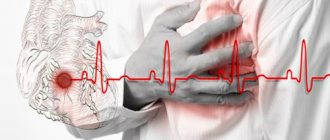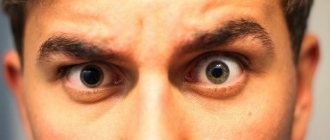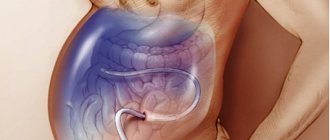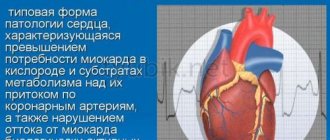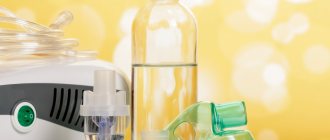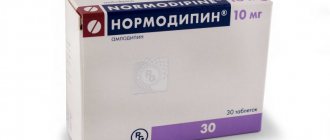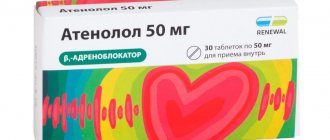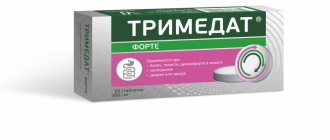- home
- Articles
- For a healthy lifestyle!
- Treatment of angina
If you have been diagnosed with coronary heart disease
,
angina pectoris
, your doctor will definitely prescribe you treatment - drug therapy, which he will recommend taking constantly, without interruptions. Why do you need to take medications regularly? And what drugs are used to treat angina pectoris, in what doses?
The first and most important thing in the presence of angina is to prevent complications of the disease ( myocardial infarction
, life-threatening heart rhythm disturbances, development of severe heart failure) and death, prolong your life.
Second and no less significant: improve the quality of your life, make it complete, eliminate pain. There are several main groups of drugs for the treatment of angina
. Let's figure out how they work and why doctors prescribe them for treatment.
Antiplatelet agents
Antiaggregates help prevent the formation of blood clots (thrombi), reduce the aggregation (sticking together) of platelets - blood cells that are responsible for the formation of a blood clot. The list of antiplatelet agents includes: aspirin, cardiomagnyl, thienopyridines.
Aspirin (acetylsalicylic acid)
Aspirin (acetylsalicylic acid)
– the main antiplatelet agent, it is prescribed to all patients suffering from angina pectoris (with the exception of those who cannot tolerate it, for example, allergy sufferers with the “aspirin triad”). The dose of aspirin is 75-150 mg daily. Taken once, every 20-30 minutes. after meal. Typically in the afternoon. Pay attention to the low dose! A typical aspirin tablet contains 500 mg, a dose that has been taken as an analgesic and antipyretic for over 100 years! For angina pectoris, no more than 1/4 tablet is recommended. This dose effectively prevents thrombosis and is quite safe for the stomach. When regularly taking higher doses of aspirin (acetylsalicylic acid), there is a risk of developing erosions and stomach ulcers. Since patients with angina pectoris require constant use of aspirin as treatment, special, safer forms for long-term use have been developed.
Cardiomagnyl (aspirin + magnesium hydroxide)
Cardiomagnyl (aspirin + magnesium hydroxide)
75 and 150 mg. Magnesium hydroxide, which is part of the tablet, stimulates the formation of special protective substances in the stomach wall of a patient with angina pectoris that prevent the formation of ulcers and erosions.
Enteric-coated aspirin (AspirinCardio 100 mg, ThromboAss 50 and 100 mg, CardiASK 50 mg, etc.)
. The special coating does not allow the tablet to dissolve in the stomach; absorption of aspirin occurs in the intestines. Important: these tablets must be taken whole, you cannot break them or chew them (otherwise you will damage the shell and the protective effect will disappear)!
Thienopyridines (clopidogrel, prasugrel, ticlopidine)
Thienopyridines (clopidogrel, prasugrel, ticlopidine)
– have a very pronounced antiplatelet effect, hundreds of times stronger than aspirin.
The prescription of these drugs (usually together with aspirin) is necessary in cases where the risk of thrombosis is very high: unstable angina
,
acute coronary syndrome
(“pre-infarction conditions”),
acute myocardial infarction
and cardiac surgery (
stenting
,
coronary artery bypass grafting
and etc.). Thienopyridines are also prescribed as a treatment for those patients who cannot take aspirin due to intolerance or contraindications.
Important:
Tell your doctor if you have previously had a stomach ulcer, duodenal ulcer (DU) or erosive gastritis, as well as unstable blood pressure with frequent crises, rises above 160-170/100 mm Hg. Art. This information will help your doctor make your antiplatelet treatment safe. It has been proven that regular use of antiplatelet drugs can reduce the incidence of myocardial infarction, strokes and death in patients with angina pectoris by up to 23% (in every 23 people out of 100)! After coronary angioplasty and stenting operations, doctors recommend taking aspirin and clopidogrel together for a certain period of time (from a month to several years).
Statins
Statins – antiatherosclerotic drugs
, reduce the level of “bad” cholesterol in the blood (total cholesterol, LDL, triglycerides), increase the level of “good” cholesterol (HDL). With long-term use of the drug in a dose that allows you to control cholesterol at the target level, they can stop the growth of atherosclerotic plaques and even reduce their size. Target cholesterol levels depend on the prevalence of atherosclerosis in the body and associated diseases (for example, diabetes). Ask your doctor what your target levels should be and monitor the effectiveness of treatment (blood tests for cholesterol and lipids) at least 4 times a year. There is no habituation to statins or development of dependence; treatment with statins should be carried out continuously. If you stop taking it on your own, then within one month after stopping the drug, your blood lipid levels return to baseline.
Statins
can reduce the risk of
myocardial infarction
and stroke by up to 30-40% (in every 30-40 people out of 100), and this effect is more pronounced in diabetics!
The fact that statins save lives became known after several large studies, which involved thousands and tens of thousands of patients with angina pectoris
, diabetes mellitus, and peripheral atherosclerosis.
Today, statins are recommended for treatment not only for patients with angina
, but also for people without coronary artery disease, with several risk factors, for the prevention of atherosclerosis, heart attack and stroke.
Four drugs in this group are registered in Russia: simvastatin (Zocor), rosuvastatin (Crestor), atorvastatin (Liprimar) and fluvastatin (Leskol).
How to take statins
Take statins in the evening (before bedtime). There are medications that can be taken at any time of the day. Nausea and stool disturbances are possible. The use of statins is not recommended for persons with active liver disease or during pregnancy and breastfeeding. A very rare side effect is muscle pain. If you start taking the drug and notice soreness in all the muscles of your body, be sure to tell your doctor to avoid unwanted complications. If you do not tolerate statins well or taking the maximum therapeutic dose does not allow you to control lipid levels, then it is possible to reduce the dose and add a cholesterol absorption inhibitor, ezetimibe. Your doctor may also recommend the use of other lipid-lowering drugs for treatment: fibrates, delayed-release nicotinic acid.
What treatment methods are used?
Treatment is aimed at improving the quality of life of patients.
This can be achieved by reducing angina attacks, preventing heart attacks, and increasing survival. Therapy is selected depending on the patient’s age, clinical course, additional examination methods, and functional class of the disease. Methods available in the arsenal: lifestyle correction, drug therapy, surgical interventions. The European Society of Cardiology protocol for the treatment of angina pectoris identifies the following mandatory points:
- Aspirin and Antianginal theray (use of acetylsalicylic acid and vasodilators).
- Beta-blocker and Blood pressure (prescribing beta-blockers and lowering blood pressure).
- Cigarette smoking and Cholesterol (quit smoking and reduce blood cholesterol to normal levels).
- Diet and Diabetes (diet and treatment of diabetes, if any).
- Education and Exercise (educational program to improve lifestyle and exercise).
Beta blockers
Beta blockers
– reduce the heart rate (pulse), thereby reducing the work performed by the heart and the need of the heart muscle (myocardium) for oxygen, improving blood supply to the heart, reducing the number of
angina attacks
and increasing exercise tolerance.
Beta blockers prevent and treat abnormal heart rhythms (arrhythmias). This is especially important after a myocardial infarction
, when the arrhythmia often becomes life-threatening.
Regular use of beta blockers can prevent the death of patients who have had a heart attack by up to 40% (in every 40 people out of 100!). Therefore, they are recommended to be prescribed to all patients after a heart attack
, in the absence of contraindications.
Beta blockers normalize blood pressure. In most patients, angina is combined with arterial hypertension
, in this case, taking a beta blocker “kills two birds with one stone” -
we treat hypertension and angina
at the same time. Some beta blockers have been shown to prevent the development of heart failure. These include metaprolol succinate (BetalokZOK), bisoprolol (Concor), nebivalol (Nebilet), carvedilol (Dilatrend). This effect, just like all of the above, is possible only with regular long-term use of the drug.
How to take beta blockers
Take a beta blocker daily, in the morning (long-acting drugs, about 24 hours) or twice a day (morning and evening). The dose of the beta blocker is selected individually. The dose is considered effective if your resting heart rate is 50-60 beats per minute while taking the drug. In this case, all the therapeutic effects of the drug are manifested. You should not suddenly stop taking the beta blocker - in the first days, your pulse may reflexively increase sharply and your health will worsen. In those patients with angina
who take a beta blocker to maintain the correct rhythm and prevent arrhythmia, after discontinuation, interruptions in heart function may resume. Undesirable effects of beta blockers are characteristic mainly of non-cardioselective drugs (for example, decreased potency), and in modern highly cardioselective drugs they occur rarely, usually with increasing doses. It is undesirable to prescribe beta blockers to patients with bronchial asthma and chronic obstructive pulmonary disease COPD), atherosclerotic lesions of the arteries of the lower extremities (atherosclerosis obliterans).
Indications for surgical interventions
Applied methods of coronary revascularization: angioplasty, stenting of coronary arteries, coronary artery bypass grafting. When choosing, the patient’s initial condition and angiographic signs of coronary artery stenosis are taken into account.
Indications for invasive intervention:
- lack of control of angina symptoms with medications;
- the patient is in a high-risk group, which is determined after stress testing;
- the patient has ventricular arrhythmias and episodic circulatory arrests that threaten his life;
- angina pectoris is combined with heart failure and a left ventricular ejection fraction of less than 40%.
Calcium agonists
Calcium agonists - are able to dilate the blood vessels of the heart, increasing the flow of blood to the heart muscle (myocardium), thereby reducing the number of angina attacks
.
They are divided into three main groups with characteristic features. Drugs from the group of dihydropyridine calcium antagonists
(nifedipine) can be prescribed together with beta blockers, or instead of beta blockers (if intolerance or contraindications to the latter).
The first generations (nifedipine) increase the heart rate, so short-acting tablets (nifedipine 10 mg) are prohibited for angina pectoris. There are special prolonged forms (osmo-adalat, corinfar-retard, nifecard) containing from 20 to 60 mg of nifedipine. The third generation of drugs (amlodipine, felodipine) practically does not increase the pulse rate and is taken once a day. Drugs from the verapamil and diltiazem group
reduce the heart rate; combined use with beta blockers is contraindicated due to the risk of bradycardia and other complications. It has been proven that regular use of calcium antagonists can reduce the incidence of strokes.
If-channel inhibitors (coraxan)
If-channel inhibitors, the only representative today is ivabradine (Coraxan)
.
The drug is able to reduce the heart rate (pulse), thereby reducing the number of angina attacks
. Unlike beta blockers, this inhibitor is effective only in sinus rhythm, does not affect heart rhythm disturbances and blood pressure, and is a symptomatic drug (eliminates symptoms of the disease). The effect on the prognosis has not yet been proven (research is ongoing). An inhibitor can be prescribed instead of beta blockers (if intolerance or contraindications to the latter) or together with beta blockers to achieve the target heart rate (50-60 beats per minute).
How to take Coraxan
Coraxan
take 2.5-5-7.5 mg 2 times a day (morning and evening). Ivabradine is not recommended if: resting heart rate is below 60 beats/min (before treatment), severe arterial hypotension (SBP below 90 mmHg and DBP below 50 mmHg), severe hepatic insufficiency, sick sinus syndrome was diagnosed, sinoatrial block or AV block of the third degree, a permanent form of atrial fibrillation, chronic heart failure stage III-IV according to the NYHA classification (there is not enough clinical data yet), an artificial pacemaker was implanted.
Angiotensin-converting enzyme inhibitors (ACEIs)
Angiotensin-converting enzyme inhibitors (ACEIs)
–
for angina pectoris,
they are prescribed to prevent the development of heart failure.
Therefore, drug doses are usually lower than for the treatment of hypertension. If after a MI you develop symptoms of heart failure or doctors identify impaired LV function, adding an ACE inhibitor to your therapy will significantly reduce the risk of death and the likelihood of a recurrent MI. The effect of drugs such as ramipril, trandolapril, zofenopril, enalapril has been proven. If these drugs are poorly tolerated, it is possible to replace them with angiotensin receptor antagonists. ACE inhibitors can be prescribed for angina pectoris without a history of heart attack
- their ability to slow the progression of atherosclerosis has been proven. The effect of the drugs ramipril and perindopril has been proven.
Basic drugs for the treatment of angina pectoris
The table shows the groups of agents used for therapy. The main ones have a vasodilating effect (nitrates, β-blockers, calcium antagonists).
| List of drugs for angina pectoris and their classes | Drugs |
| Nitrates |
|
| β-blockers |
|
| Calcium antagonists (CA) |
|
| ACE inhibitors |
|
| Antithrombotic |
|
| Statins |
|
| Cardiometabolics |
|
Nitrates
Nitrates
– used
to relieve anginal pain due to angina pectoris
for more than 100 years!
They are symptomatic (pain-relieving) drugs and do not affect mortality or life expectancy. The effect of nitrates is a short-term dilation of the blood vessels supplying the heart. There are many forms of nitrate release available for different situations. For example, short-acting nitrates, nitroglycerin in the form of sublingual tablets (under the tongue), spray (Isoket, Nitromint, etc.) for quick relief of an attack of angina. Instantly relieves pain, lasts for 10-15 minutes. They are used not only to relieve an attack that has already occurred, but also to prevent it (for example, before starting physical activity or in other situations in which, in your opinion, an angina attack
). Capable of sharply reducing blood pressure for a short time.
Rules for using short-acting nitroglycerin:
- Sit or lie down.
- Take nitroglycerin (put a tablet under your tongue or spray the drug under your tongue).
- You can take 1-3 doses of nitroglycerin, with a break of about 5 minutes between doses.
- Let others know that you are having an attack and are not feeling well.
- If the pain does not stop after 15 minutes, call an ambulance.
Nitrates
moderate duration of action (nitrosorbitol, isosorbide mononitrate and dinitrate 20 and 40 mg, etc.) act for several hours (up to 6 hours) and are used
to prevent angina attacks
.
As a rule, these forms of nitrates are prescribed 2-3 times a day. Remember - if nitrates enter your body continuously, then after a few days the sensitivity of your blood vessels to nitroglycerin will significantly decrease and the drug will no longer prevent angina attacks
. Therefore, when treating with nitrates of average duration of action, “nitrate-free intervals” of up to 6-8 hours are necessary. Your doctor will prescribe you to take the drug in the morning and afternoon (before 17.00), or in the afternoon and evening, etc. Long-acting nitrates (retarded forms of nitrates, 50 mg) will help avoid the development of tolerance to nitrates. Such drugs are taken once a day, the effect lasts up to 10 hours, providing the necessary intervals to restore vascular sensitivity.
Remember:
Long-acting nitrates cannot be the main method of treatment!
It is recommended to prescribe nitrates only if you are taking the main groups of drugs in an effective dose, but you continue to have angina attacks
. Short-acting nitrates - used as required. Taking nitrates is relatively often associated with the appearance of side effects (primarily headaches), the development of addiction (tolerance) to the drug when taken regularly, and the possibility of “rebound” syndrome when the drug is abruptly stopped entering the body.
Symptoms
When angina occurs, the pain is usually intense and can be relieved by taking nitroglycerin along with stopping physical activity. These pain sensations have characteristic features: a pronounced time of onset and cessation (nature of the attack), occurrence in certain circumstances.
Among the most common conditions for the occurrence of an attack of angina pectoris are active walking (acceleration of movement, climbing a mountain, difficulty in the form of a sharp headwind, heavy load). Also, other physical efforts and significant emotional stress can cause symptoms of angina pectoris. To determine pain arising from physical effort, it is enough to stop the tension. And the discomfort will subside within 5 minutes. The complete elimination of the symptoms of angina pectoris is facilitated by taking nitroglycerin. As a rule, to make a diagnosis, it is enough to take into account the above symptoms and signs: an increase in pain during physical activity, a favorable reaction to nitroglycerin and the nature of the attack.
Cytoprotectors
Cytoprotectors
– protects against the death of heart muscle cells during episodes of acute and chronic oxygen deprivation (ischemia), allowing the cells to produce energy to pump the heart using less oxygen.
There is an evidence base for the drug trimetazidine (Preductal MV). The drug has no contraindications (except for individual intolerance) and side effects. Partnership between doctor and patient is the key to successful treatment of angina pectoris.
Still have questions? Make an appointment! Using materials from the article by N.S. Veselkova
